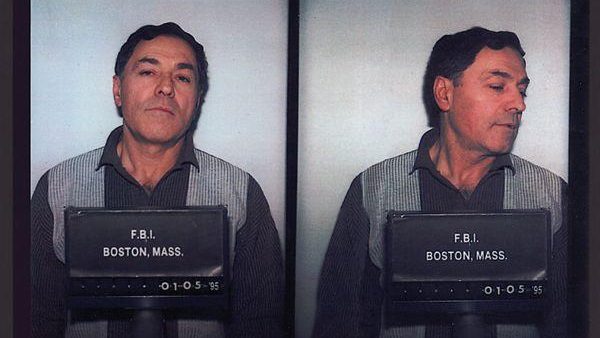Mob bosses, in their quest to build empires, seldom operate in isolation; they rely on a closely-knit nexus of associates to distribute work and execute operations with precision. In Netflix’s ‘How to Become a Mob Boss,’ the spotlight extends beyond the mob bosses themselves, illuminating the crucial role played by their close associates in the workings of organized crime. One such pivotal figure was Stephen Flemmi, a close associate of Winter Hill Gang boss Whitey Bulger. As we delve into Stephen Flemmi’s story, we will see how his life unfolds as a testament to the symbiotic relationships that underpin the world of crime, showcasing how these associates, existing in the immediate orbit of mob bosses, are instrumental to the success and longevity of their illicit operations.
Steve Flemmi’s Double Life in the Criminal Underworld
Stephen “The Rifleman” Flemmi, born on June 9, 1934, in Boston, Massachusetts, forged a notorious path in the criminal underworld as a key architect of the Winter Hill Gang’s illicit operations. Raised in the gritty neighborhoods of Boston, he enlisted in the Army in 1951 at the age of 17 and served two tours of duty in Korea with the 187th Airborne Regimental Combat Team.

Flemmi’s ascent to notoriety began when he formed a close association with James “Whitey” Bulger, the infamous Winter Hill Gang boss. Their partnership transcended mere criminal enterprise; it evolved into a deeply rooted friendship and a collaborative effort in steering the gang’s extensive criminal endeavors. As a proficient marksman, Flemmi earned the moniker “The Rifleman,” a testament to his adeptness with firearms that became a hallmark of his criminal persona. The duo’s criminal empire extended across various illicit activities, ranging from traditional racketeering and extortion to their involvement in the drug trade. Flemmi’s role in the Winter Hill Gang was not limited to the enforcer; he became an instrumental figure in the gang’s violent pursuits, allegedly participating in numerous murders and conspiracies.
Recruited as an FBI informant in 1965, Flemmi provided crucial information about the Patriarca crime family during the controversial tenure of FBI agent John Connolly. This alliance allowed the Winter Hill Gang to operate with a degree of immunity, blurring the lines between criminality and law enforcement. Flemmi’s arrest in 1995 for his illegal operations, including racketeering and multiple murders, proved to be a public relations nightmare for the FBI, exposing corruption within the agency and raising questions about the ethical boundaries of such alliances in the realm of organized crime.
Where is Steve Flemmi Now?
Faced with the looming specter of imprisonment, Flemmi employed various tactics in a bid to evade the confines of prison. Initially, he crafted a defense strategy centered on asserting that he was being prosecuted for crimes effectively authorized by the FBI. This plan aimed to showcase the extent of the FBI’s involvement in his criminal activities, creating a narrative that he was merely following orders. However, this defense faltered as numerous informants had already cooperated with the FBI, providing ample evidence that Flemmi had committed multiple murders driven by personal motives and profits. In 2003, recognizing the gravity of the charges against him, Flemmi entered into a plea deal. Faced with the possibility of execution, he opted to exchange his plea for a life sentence without the possibility of parole for 10 murders.

Flemmi took the stand as a key witness against his former associates. At the trial of FBI agent John Connolly for the murder of John Callahan, Flemmi provided crucial testimony that shed light on the intricate web of criminal activities. He continued his cooperation with law enforcement by testifying against James “Whitey” Bulger in the 2013 trial for murder and racketeering. Bulger received a life sentence plus five years for his involvement in various criminal enterprises and died in prison in 2018.
Flemmi’s legal journey took a different trajectory in 2021 when he applied for compassionate release. However, his plea was denied, and the parole board set an astonishingly distant parole date for the year 2218, stipulating that he has 2,680 months still to serve. Flemmi’s attempt at securing release through compassion faced a formidable legal barrier, underscoring the gravity of his crimes and the enduring consequences of his extensive involvement in organized crime.
Read More: Where is John Martorano Now?


You must be logged in to post a comment.